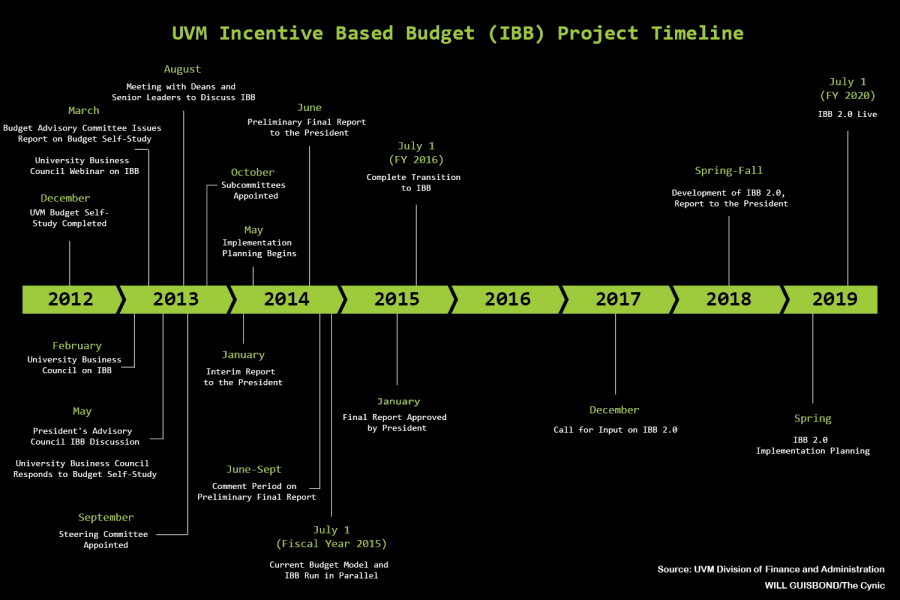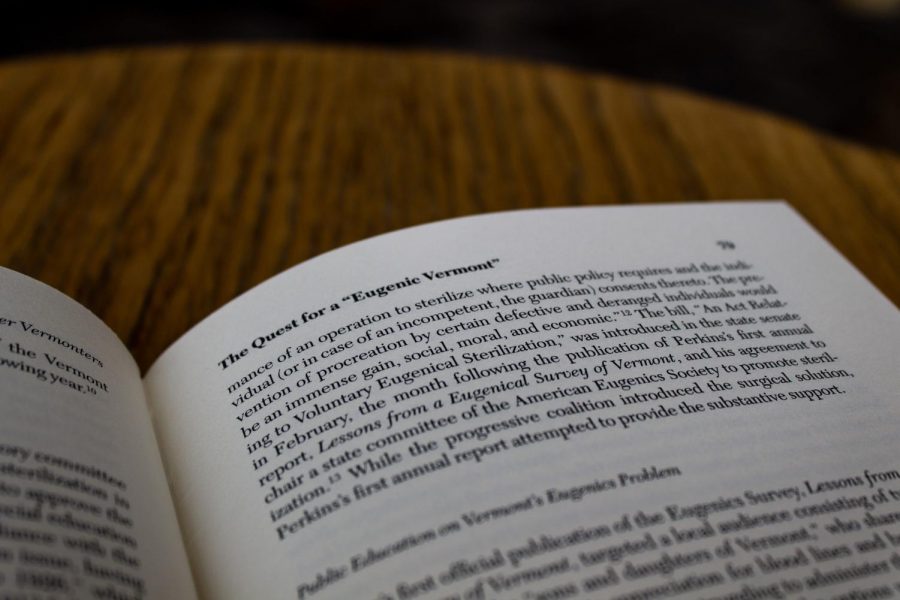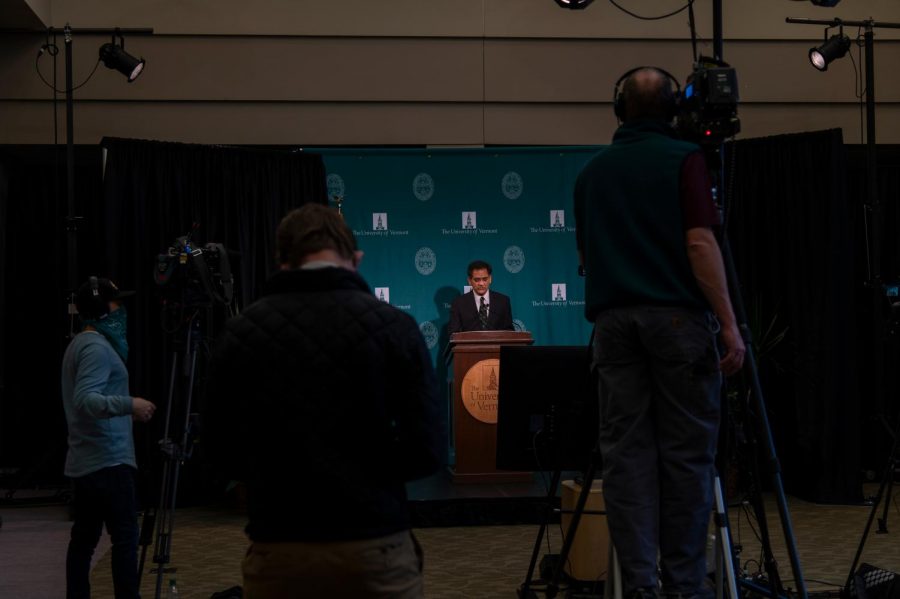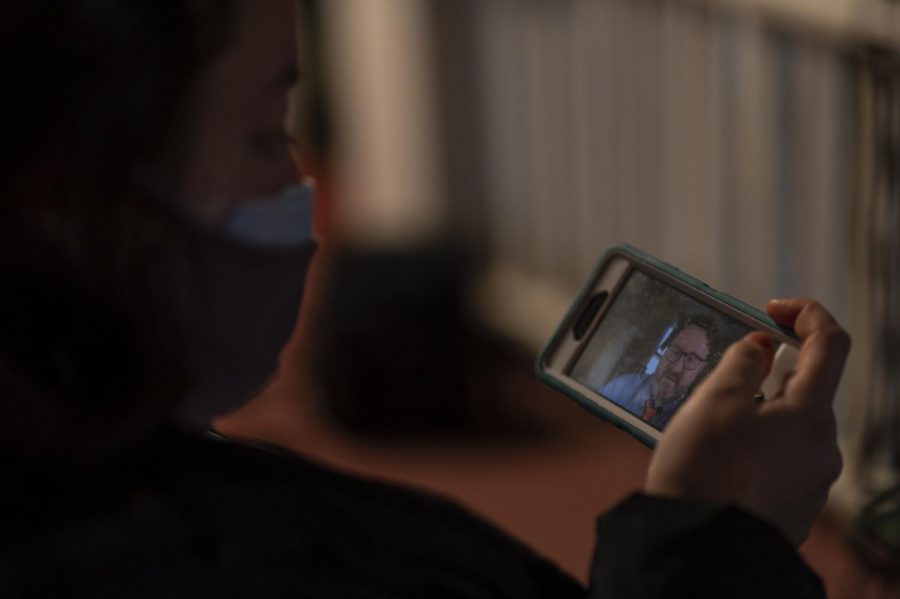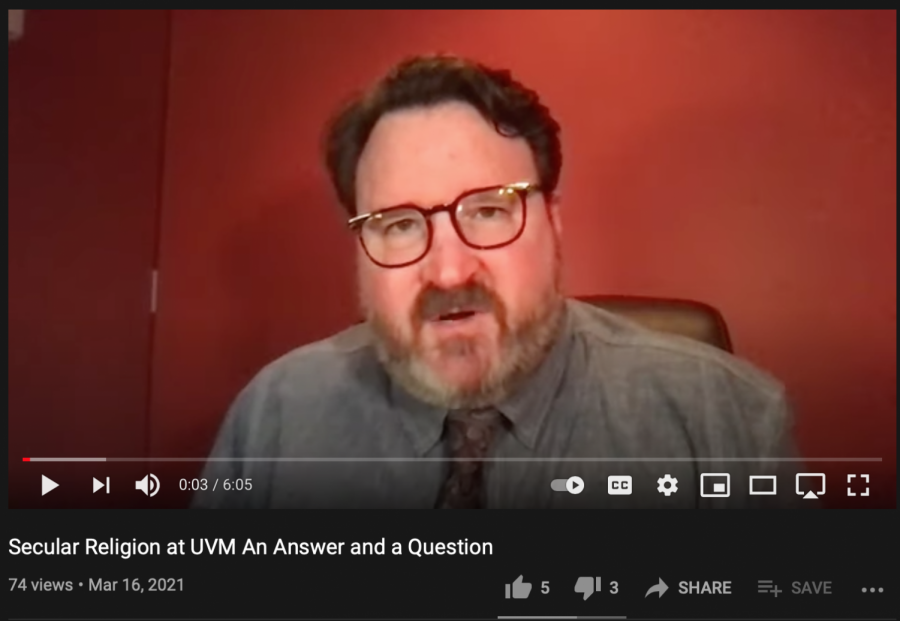Living in a culture crammed with so many “conservatives,” “liberals” and everything in be-tween, taking black and white stances can be easy-especially when barraged with information related to the agendas of either party.
On polarized issues, the temptation becomes even greater.
Between the search for weapons of mass destruction and the release of “Fahrenheit 9/11,” to the troop surge and “staying the course,” discerning reality from speculation in the Iraq War grows more complex with each day.
However, situational experience has cleared the haze of opinion for some.
Sgt. Drew Cameron, UVM student and Iraq veteran, stands firmly behind his belief that U.S. involvement in Iraq will not improve the lives of Iraqi citizens.
“What I believed I was a part of turned out to be false,” Cameron said. “I had a sincere hope that in the end, the people of Iraq would be better for it, but I realized that that could never happen with military intervention.”
Cameron, who grew up in a left-wing military family, recently spoke out against U.S. involvement in Iraq and discussed his personal experience as a soldier at a demonstration in Burlington’s City Hall.
In a later interview, Cameron expressed his regret for participating in some of the missions that he signed up for by default when he enlisted.
“I’m not proud of what they make us do, of what was done to other people, of being silent and just doing my mission and of being violent,” he said.
UVM senior Brian Barrows, a cadet in the UVM ROTC, feels differently.
“The U.S. military fights wars. If you don’t want to be a part of that, don’t sign up. My best friend was a Marine and he gladly gave his life. To denigrate their service because you want attention, or you want to paint what our government does in a bad light – shame on you.”
Barrows rejects the stereotypes that are placed upon some service members in the U.S. military.
“It’s not about going over [to Iraq] to kill anybody, it’s about making sure that the guy standing next to you comes out OK,” Barrows said.
Barrows, like other active members of the ROTC, often wears a uniform around campus.
“Walking around on campus you get lots of dirty looks and you don’t have to walk more than five or 10 feet to see something on a wall or poster board de-meaning the war,” he said.
On UVM’s campus, every opin-ion on the war is voiced, often loudly. Senior Rebecca Grover believes that many college students remain bewildered about the war from be-ing bombarded with the information and discourse that surround it.
“Everyone’s in the dark about it and just confused,” Grover said. “I know I am.”
Grover holds the feeling that the United States could be using the money that it has spent on the war in Iraq for better purposes. “In general, I feel it’s a big waste of money, time and human lives,” she said.
Some proponents of the war claim that one of the major goals in Iraq is to provide native citizens with humanitarian aid that will allow them to eventually take control of their own government.
Others, however, believe this is a fa?¤ade for the government to work under.
Cameron pointed to a scenario he feels was an attempt to characterize U.S. occupation as one of humanitarian aid.
During his deployment, the single humanitarian mission Cameron was involved in consisted of delivering six truckloads of desks to a school in the village of Taji. Soon after, a convoy of high-ranking officials and reporters arrived to document the deed.
Cameron described the event as a contrived attempt to facilitate worldwide endorsement of the U.S. military. “It was PR propaganda to show the rebuilding,” he said.
Barrows believes the media oper-ates in a different, but equally deceitful manner.
“They won’t always notice when a combat medic walks by and helps bandage up a kid who’s scraped [his] knee or when they hand out food or water or books or help build a school because that’s not interesting media,” he said. “That’s not going to cause a reaction amongst viewers.”
A common argument against the war is that the U.S. is imposing its cultural authority upon a reluctant population. “There’s this belief that the U.S. not only has the right and the ability but the justification to impose their will on other people,” Cameron said.
Cameron sees this as the application of the U.S. Constitution in a country that has never operated under it. To Barrows, it is the responsibility of the U.S. to help the people of Iraq get back on their own two feet.
“The military is there to help rebuild the country and facilitate the people of Iraq picking themselves back up and taking control of who and what they are and not living in fear of every-thing.”
For Barrows, the U.S. Constitution trumps everything else.
“We take an oath and sign a contract that is supposed to uphold the Constitu-tion. We don’t necessarily – as individuals – have to agree with everything the government does, but if you’re giv-en a lawful order, it’s a lawful order.”
Being in the Army while simultaneously enrolled as a student can be a difficult shift from the “typical” college life-style.
Cam-eron, who enlisted after spendwing a short time at a com-munity college, said that his decision hinged on both wanting to find out what the Army was about and fiscal issues.
“It seemed like an option to get out,” Cameron said. “I could go to the Army, save up and go wherever I wanted for school.”
For Barrows, joining the ROTC was a selfless act. “Me, I’m a 22 year old college student,” he said.
“What gives me the right to be sit-ting around, doing trivial meaningless things when someone who is 28, 30 a couple kids, a wife – why are you sit-ting around doing nothing when they are deployed serving our country? It doesn’t seem fair to me.”
In bringing recruits into the fold, Cameron believes that the Army is sometimes a little too persuasive.
“They paint a pretty picture,” Cameron said. “They made it sound like this amazing opportunity – I’d make bank for college, gain workplace skills. It was gussied up to appear as this amazing opportunity that I’d been so fortu-nate to have been given.”
Barrows feels that recruiters are simply doing their job – being persuasive, and that make a decision based solely on what they say isn’t the correct way to go.
“I take issue with some of [what is said about recruiters] because that’s like someone who did drugs their whole life turning around and complaining about it,” Barrows said. “You make the choice to enlist in the military and you know what’s go-ing to happen and you know the kind of things you will be asked to do. So to turn around and complain afterwards, I think, is somewhat foolish.”
Objectivity concerning the conflict in Iraq is almost impossible. It’s all about perspective and it’s often even harder to understand someone else’s than to develop a unique, personal one.
“A lot of people identify the uniform with some amount of prejudice because they don’t have the understanding and the experience to make a real judgment call,” Barrows said. “It would be the same thing as me identifying 90 percent of UVM students as granola crunching, hippy tree huggers. They’re not.”











